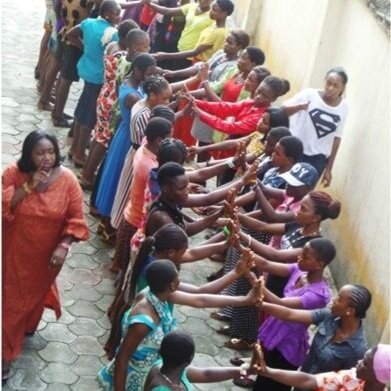Program Design at GLC
Program Design at Balamere
Girls Leadership Camp
Background
Gender inequality in education poses a pressing issue in the Niger Delta region of Nigeria, especially impacting girls. Despite recent progress, girls still encounter significant barriers to quality education compared to boys. Factors like poverty, cultural norms favoring boys' education, early marriage, and inadequate infrastructure disproportionately hinder girls' enrollment and retention in schools. Opportunities that expose girls to new possibilities are crucial in tackling these challenges. I gathered a team of international and local university students to develop a boot camp program that aimed to empower girls by offering opportunities to explore diverse fields, acquire skills, and access mentorship, enabling them to challenge traditional gender roles, envision brighter futures, and make meaningful contributions to their communities and society as a whole.
My Role
As a program designer, I developed an empowering two-week initiative designed for girls aged 13-20 hailing from the villages of the Niger Delta, offering a comprehensive curriculum to cultivate essential leadership skills. The curriculum spans diverse subjects, encompassing vocabulary enhancement, essay writing, storytelling, handcrafts, and thought-provoking lectures covering crucial topics such as sexual education and health, career guidance, community improvement, the qualities of effective leadership, and honing public speaking abilities. This holistic approach aims to equip participants with a well-rounded skill set, fostering their personal growth and leadership potential. The program was held in 2012, 2013, and 2014.
Meet Ebiere
Personas serve as tools to foster greater empathy for a specific population when designing a service or experience tailored to their needs. Although personas were not initially integrated into the program's development, the following story provides insight into the typical camper's perspective.
Ebiere’s Story: I am from Yenagoa in Bayelsa State, Nigeria, where I live with my mom and younger sister. Sometimes my cousin comes to stay with us for months at a time. I am 14 years old and in SS1 and my favorite subject in school is mathematics. When I grow up I want to be a hairdresser because my friend’s elder sister makes a lot of money doing hair. My mom’s friend nominated me for a leadership program in Lagos and I am nervous to attend but excited to go to Lagos for the first time.
Leadership from Scratch
I drew upon my training as a Posse Foundation Scholar and other leadership skills cultivated during my college experience to develop the initial version of a two-week curriculum. Each day, my team leaders and I conducted debrief sessions to exchange insights and adapt the program to meet the evolving needs of our campers. While we initially focused on traditional leadership aspects, we soon recognized the importance of integrating fundamental topics like sexual health and education, personal hygiene, vocabulary lessons, self-esteem building, and craft activities into the curriculum. Over the span of two years, the curriculum underwent continuous refinement, eventually incorporating a workshop dedicated to identifying and addressing issues within their communities. This addition proved to be most transformational in that girls were given the space to speak on issues they might have not had before.
Program Objectives
EXPOSE THEM TO NEW EXPERIENCES: By hosting the camp in Lagos, the economic capital of Nigeria, we expose the girls to a fresh environment and a range of professions and opportunities available to women.
EMPOWER THEM TO SPEAK UP INSIDE AND OUTSIDE THE CLASSROOM: The program incorporates opportunities for public speaking in front of both larger and smaller audiences, giving the girls ample practice in responding to questions in class and delivering speeches confidently.
ENCOURAGE THEM TO PAY IT FORWARD: While our capacity allows us to host only 40-50 girls annually, we emphasize to the campers the importance of passing on the knowledge to those who couldn't attend. This practice not only helps them hone their new leadership skills but also allows them to share the valuable insights gained at the camp with others.



